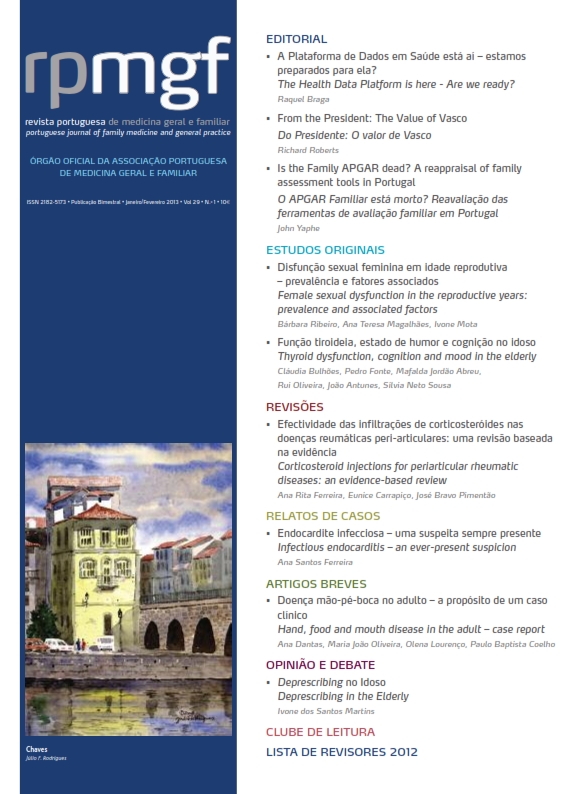Deprescribing in the elderly
DOI:
https://doi.org/10.32385/rpmgf.v29i1.11048Keywords:
Polypharmacy, Aged, Inappropriate PrescribingAbstract
In elderly patients, the risks associated with polypharmacy are due to drug interactions, adverse effects, and poor compliance with complex treatment plans, leading to worsening of underlying conditions. Deprescribing is the cessation of therapy supervised by a clinician. Drugs that should be considered for cessation are those responsible for side effects, those not clinically indicated, drugs used to treat side effects of another drug that has already been stopped, or drugs used for the treatment of a situation that has resolved. There are few studies of the best method of deprescribing. The decision to stop a drug arises from the balance between therapeutic goals and the risk/benefit ratio of treatment.Downloads
Downloads
Published
Issue
Section
License
The authors will assign to the RPMGF the sole right to publish and distribute the content of the manuscript specified in this declaration via physical, electronic, broadcasting or any other medium that may come into existence. They also grant the RPMGF the right to use and exploit this manuscript, in particular by assigning, selling or licensing its content. This permission is permanent and takes effect from the moment the manuscript is submitted, has the maximum duration allowed by applicable Portuguese or international law and is of worldwide scope. The authors further declare that this assignment is made free of charge. If the RPMGF informs the authors that it is not going to publish their manuscript, the exclusive assignment of rights ceases forthwith.
The authors authorise the RPMGF (or any entity it may appoint) to act on their behalf when it believes that copyright may have been infringed.





